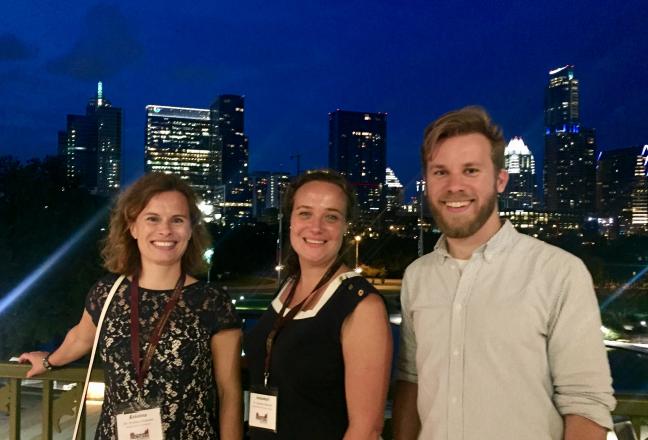Frontiers 2018 in Austin, Texas, served a variety of perspectives into service research

After listening three inspiring days full of plenaries and presentations by the best service researchers around the world in trendy and boiling hot Austin, Texas, it became clear that there are two themes above others that interest service scholars at the moment: Health care services and artificial intelligence (AI). Frontiers in Service conference was arranged the 25th time this year.
Health care issues were covered on many levels and from many perspectives, in the conference. Elderly people’s special problems like memory diseases were brought up in several presentations. Overall, care and comfort seemed to be an important topic; health care services differ from many other services because they usually are not wanted by customers, as Professor Leonard L. Berry stated, in his plenary. Nevertheless, they are needed, obviously. That discrepancy makes them especially difficult to implement to a high standard.
Jim Spohrer, a researcher and a computer scientist working with AI at IBM, argued that to be able to get AI to work for us, we still need more computing power, larger amounts of data, and still some more time. However, at its best, AI can offer us “insanely great” labour productivity but on the other side job loss and structural changes on job markets are inevitable consequences of AI.
These two topics, health care and AI, intertwine interestingly when scetching the future of services, and transformation of services was in fact labeled as the overarching theme of Frontiers 2018. What will the role of AI be, in care services? No-one knows yet but already now there are plenty of well-working examples of AI, on different fields of services. What might be more difficult to comprehend is how we as human beings will transform as we learn to accept AI and robotics as ever more important part of different areas in life.
In her plenary speech, CERS Director Professor Kristina Heinonen brought up five major views that service researchers should take into account regarding transforming services: 1. service technologies, 2. customers’ everyday life, 3. services in policy making, 4. digital health, and 5. smart societies. All the themes are wide and demand in-depth understanding. “We need a paradigm change from descriptive to predictive to prescriptive research, to be able to handle them”, she stated.

Also several other researches spoke for making a real impact in the world, in service research. It is a challenge to researchers and requires even closer cooperation with industry and non-profit organizations but the prospects in developing better services based on academic research seemed to be very promising in many fields, based on dozens of enthusiastic presentations, in the conference.
CERS coordinator
Image 1. Frontiers in Services conference 2018 was organized in cozy Austin that calls itself the world capital of music.
Image 2. The CERS crew in Austin: Professor Kristina Heinonen, Coordinator Annamari Huovinen and Junior Researcher Hannu Tikkanen.
